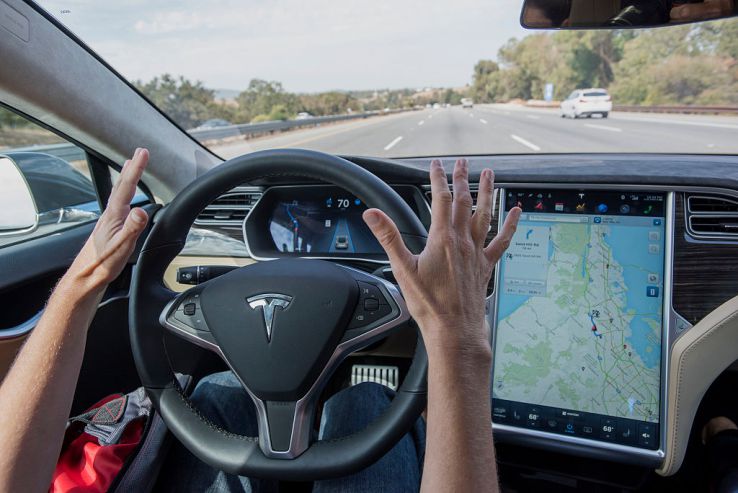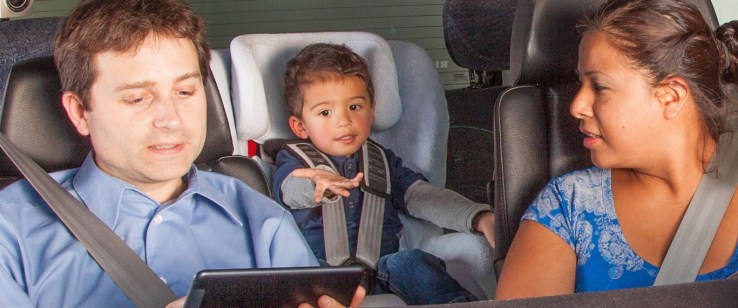

Powerful sensors and software have made autonomous cars impressively aware of their surroundings — but it isn’t just obstacles, pedestrians, and other cars that a vehicle’s AI needs to watch out for. It also needs to know what’s going on inside itself, and researchers from Fraunhofer are hard at work making that happen.
“We are expanding sensor technology to the entire interior,” said Fraunhofer’s Michael Voit, who manages the research group, in a company blog post. “Using depth-perception cameras, we capture the vehicle’s interior, identify the number of people, their size and their posture. From this we can deduce their activities.”

Lots going on in this car that the AI would probably want to be aware of.
There are plenty of benefits in a car knowing how many passengers it has, where they are, and what they’re doing. In case of emergency — a sensor failure, for instance — the car will know how long it will take for a driver to reach the wheel. If a kid in the back seat slips out of their seatbelt while mom and dad are taking a nap (the privilege of owning a self-driving car), they can be warned. In a collision scenario, the car could steer so that it is struck in an unoccupied quarter. Airbag deployment, too, could be adjusted to the size or position of a passenger.
Of course, some of these things can be accomplished with existing tech — weight sensors and the like — but more and finer awareness of the passengers is still a worthwhile goal in autonomous vehicles. Work is progressing on identifying various actions and common objects as well — understanding that a person is reaching for the sun visor, or installing a child seat, for example.
So far the cameras have only been installed in the R&D company’s driving simulator, but the plan is to put it into a smartened-up minivan for real-world testing.
Fraunhofer is working with Volkswagen Group Research, Bosch, Visteon, and others on this “Intelligent Car Interior” project, and the whole thing is funded by grants from the German government.
Featured Image: Bloomberg / Contributor/Getty Images

